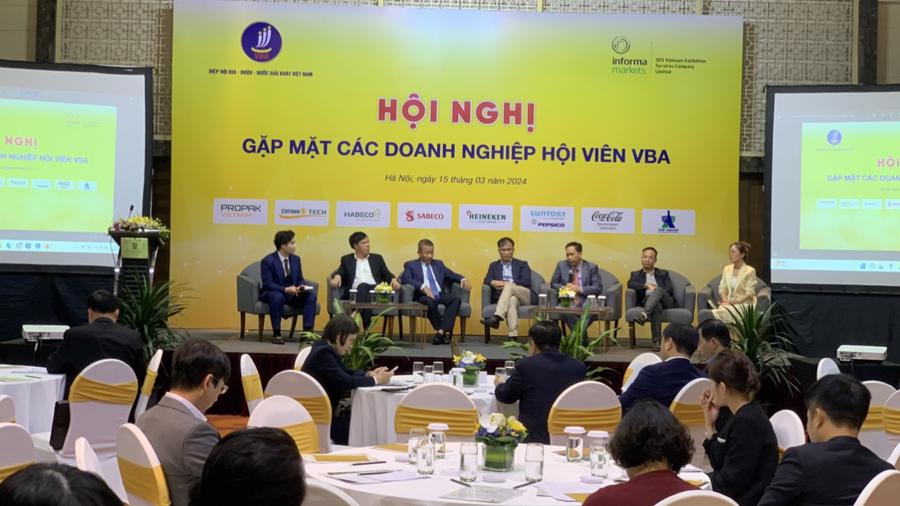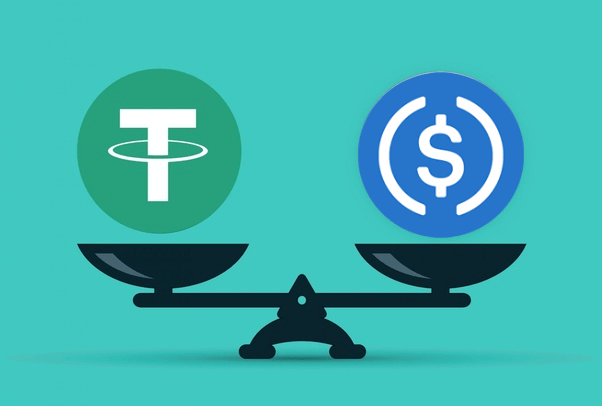On March 15, the Vietnam Beverage-Alcohol-Beverage Association (VBA) held a meeting with its member companies. During the meeting, companies and economic experts discussed the difficulties, challenges, and business prospects of the industry in 2024.
INDUSTRY’S REVENUE AND PROFIT DECREASE BY 15%-20%
According to VBA, the beverage industry contributes about 60 trillion VND annually to the state budget, creating millions of direct and indirect jobs for workers. The industry’s high-quality and diverse products meet the increasing consumer demands domestically and for export. The industry also plays a crucial role in a chain of related industries such as commerce, transportation, and restaurants, promoting the development of tourism and services.
However, in recent years, the industry has faced many difficulties caused by Covid-19, global conflicts, and the impact of Decree 100 on alcohol concentration penalties.
According to Mr. Lam Du An, Deputy General Director of Sabeco, it is expected that in 2024, the input costs and raw materials for the beer industry (such as hop prices, beer cans, bottle caps, raw materials, transportation costs, etc.) will continue to increase.
VBA stated that the entire industry has experienced a significant decline in revenue and profit, affecting distribution systems, restaurants, amusement parks, transportation, and input supply chains, all of which have recorded a significant decrease of 15-20%. Some indicators have even dropped by 30-40%.
Therefore, many businesses have suggested that VBA proposes to the Government to postpone the amendment of the Special Consumption Tax Law.
“The beer industry has made significant contributions to the economy, job creation, and revenue for the country. After Covid-19, the beer industry is still in a recovery phase, in the context of economic uncertainties and people gradually restricting the consumption of alcoholic beverages – partly due to economic difficulties, and partly due to other policies (Law on Prevention of Damage from Alcohol, regulations on administrative penalties in the field of transportation under Decree 100). The economic situation in 2024 is predicted to continue to be difficult, so increasing the special consumption tax at this time is not appropriate in our opinion, leading to significant impacts not only on manufacturing businesses but also on supply chains and consumers,” said Mr. Nguyen Duy Vuong, Head of External Relations of Heniken Vietnam.
Heniken Vietnam also mentioned that material prices have actually exceeded the capacity to bear for businesses. Therefore, selling prices will have to increase, and this increased cost will be passed on to consumers. Beer prices have already increased above the inflation rate due to market conditions. This means that, according to the current tax calculation method, the tax rate per unit of beer has already increased without the need for a tax increase.

SCIENTIFIC BASIS NEEDED FOR POLICY DEBATE
During the conference, economic experts shared the difficulties of the entire industry, especially the liquor and beer businesses.
However, Assoc. Prof. Dr. Vu Sy Cuong, Deputy Head of the Financial Policy Analysis Department at the Academy of Finance, stated that the project to amend the Special Consumption Tax Law has been proposed for a long time, but under the impact of the Covid-19 pandemic, the Government has postponed the amendment.
“The draft law on special consumption tax has been proposed for a long time, not just recently. It should have been done earlier, but due to Covid-19, it has been delayed until now. In fact, to increase national competitiveness, the Government has reduced corporate income tax, import-export tax, etc., so it is necessary to consider increasing other types of taxes. Meanwhile, Vietnam’s special consumption tax rate is lower than that of other countries in the region, so the increase is normal,” said Assoc. Prof. Dr. Cuong.
Mr. Nguyen Minh Thao, Head of the Central Economic Research and Competitiveness Evaluation Division at the Central Economic Research and Management Institute, provided information: “In May 2024, the Government will propose to supplement the special consumption tax program into the plan, and in October 2024, the Government will propose the first draft law to the National Assembly. In May 2025, it will be approved, and according to the normal timeline, it will take effect from January 1, 2026.”
In this process, Mr. Thao recommended that businesses proactively submit feedback and policy objections with persuasive and scientifically based arguments.
“Throughout the process of working with the Ministry of Finance, we have noticed that they have also not provided scientific grounds for the impact of policies on the development of the industry, laborers, and supply chains. Therefore, when objecting, businesses need to provide figures, stating which tax/fee they believe is high or unreasonable, and we must indicate what level is appropriate and why…” suggested Ms. Thao.
Sharing the same view as Ms. Thao, Assoc. Prof. Dr. Vu Sy Cuong emphasized that state management agencies are currently open-minded in accepting policy suggestions instead of imposing them. The issue is that the parties with related interests must analyze the overall benefits through authentic data to persuade the drafting agency and the National Assembly.
“We have found it challenging to obtain data on the liquor and beer industry. In my opinion, it would be better if every year you aggregate/publicly disclose data on the industry to see how much production volume, revenue, supply chains, and impacts on the economy. How many jobs are created? How much revenue is contributed to the budget?… We must have enough information about the benefits of all parties involved in order for the planning agencies to understand,” said Assoc. Prof. Dr. Vu Sy Cuong.
POLICIES AIMING FOR SUSTAINABLE DEVELOPMENT
Mr. Cuong added that currently, the special consumption tax contributes about 8% of the total state budget revenue annually, but the beer, alcohol, and non-alcoholic beverage industry is not the largest contributor.
“The Government is temporarily not discussing the application of a mixed tax method to beer/alcohol, but sooner or later, this tax method must be applied. In the development strategy, the Ministry of Finance has also emphasized the change from the old tax calculation method to a modern method that is closer to international practices,” said Assoc. Prof. Dr. Vu Sy Cuong.
According to experts, the current difficulties of the entire industry are just one factor but need to be considered comprehensively and deeply for the issue of feedback on tax rate amendment, law amendment for the long-term development of the industry, the environment, society, prosperity, and sustainability.
As a beer business with over 30 years of operation in Vietnam, creating over 200,000 jobs and contributing about 1% of GDP to Vietnam, Heniken Vietnam representative stated that they do not have a short-term viewpoint concerning special consumption tax.
“We look at the best international practices and aim to build what is most meaningful in the next decades. The current tax policies are not giving us the motivation to invest in improving production technology to achieve products that meet high standards and ensure consumer health. Meanwhile, with the fast and strong trend internationally, regulations on health, safe living, green and sustainable environments, etc., are being emphasized by all countries in the world, including Vietnam,” said Heniken Vietnam representative.
Mr. Nguyen Quoc Viet, Deputy Head of VEPR, also believes that liquor and beer businesses need to enhance the factors of environment, society, and sustainable management (ESG).
“We also need to raise quality standards. It is clear that Vietnamese customers are becoming more demanding like foreign customers. Therefore, we need to raise standards to be more in line with the world, protecting the health of Vietnamese people.
VBA should take the lead in proposing to the Government to develop specific criteria for each product line and gradually integrate small businesses and craft liquor producers into the supply chain.
When craft liquor producers are integrated into the supply chain, the government can collect taxes while businesses can manage quality and limit the impact of contraband liquor,” recommended Mr. Viet.
Mr. Viet believes that if this can be achieved, the market for Vietnamese liquor and beer businesses can expand to ASEAN and Asia.
In the long term, with the development and increasing awareness of the community, the beer and liquor industry needs to be encouraged to introduce new and improved high-quality products, especially those with low alcohol content.
According to Mr. Dau Anh Tuan, Secretary-General of the Vietnam Chamber of Commerce and Industry, in the latest draft, the Ministry of Finance has exempted beer with 0% alcohol content from the special consumption tax. This is a positive signal that management agencies are receptive to market opinions with the goal of balancing overall interests.











































